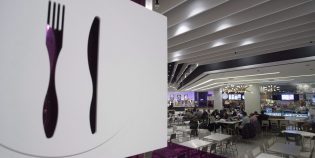Eighteen Olympians, including swimming great Mark Spitz and diver Greg Louganis, have sued Samsung Corp. over a Facebook application they allege misuses their names and images.
According to the lawsuit filed in Los Angeles Superior Court on Wednesday, the athletes object to the Samsung Olympic Genome Project, which shows Facebook users how they are connected to famous Olympians.
Along with Spitz and Louganis, 13 other swimmers, track star Jackie Joyner-Kersee and pro beach volleyball player Phil Dalhausser are named as plaintiffs in the lawsuit.
The complaint alleges Samsung has been running the Olympic Genome Project since March and never got permission to use the athletes’ names and images.
“Plaintiffs’ names and images and background information are on the Facebook application, in an attempt to link plaintiffs to consumers,” the lawsuit says. “Prominently displayed on the Facebook application is the Samsung’s trademarked name as well as advertising for defendants’ ‘Galaxy’ product. Samsung has used plaintiffs’ names and images to create the impression that plaintiffs endorse Defendants’ products and business.”
The athletes claim the app violates a section of the California Civil Code which makes it unlawful to use without consent another’s name, voice, signature, photograph or likeness for commercial purposes.
The lawsuit seeks licensing fees that should have been paid, plus a percentage from the gross sales of Samsung’s products since the project launched, in addition to unspecified general and punitive damages and attorneys’ fees.
USOC spokesman Patrick Sandusky said the USOC and Samsung began the Olympic Genome Project so Americans could find connections with U.S. athletes and not as a way to commercialize athletes’ names.
“We have honoured the requests of the athletes who have filed suit to remove their names, as we offered to do months ago, and of course we will remove any athletes that do not wish to be listed,” he said in a statement.
Richard Foster, an attorney representing the plaintiffs, took issue with Samsung’s statement that it “followed USOC procedures in communicating with the athletes” and that “the athletes have had the opportunity to voice their opinions on the program and to control their participation.”
Foster said Samsung’s procedures “consisted of sending an email to some of the plaintiffs, in which they were told of the Genome Project and advised that they would be a part of the project unless they ‘opted out.”’
He said several of the athletes returned the opt-out letter saying they didn’t want to participate, but were included anyway, while others deleted the email without reading it.
“The project clearly sought to induce sales of Samsung products and sought to build the athletic community around its brand,” Foster said.









